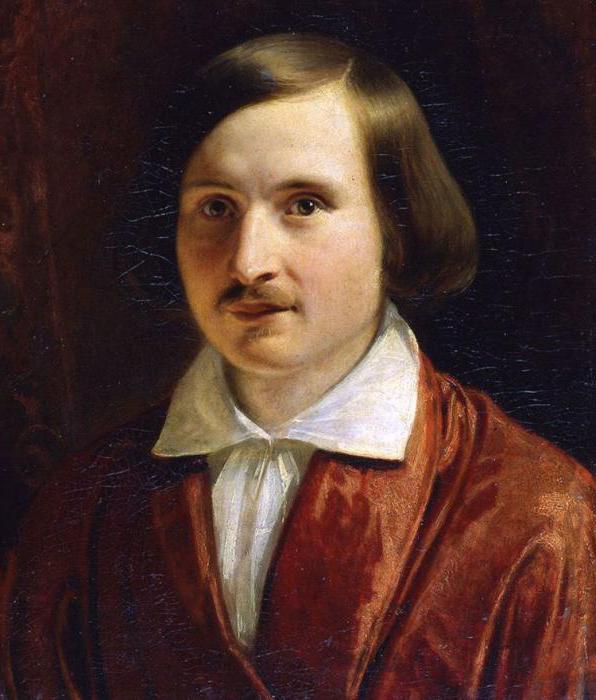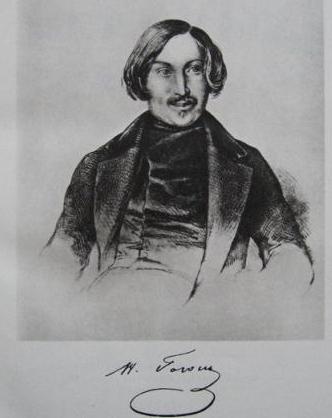Gogol, a contemporary of Pushkin, created his works in the historical conditions prevailing in our country after the unsuccessful performance of the Decembrists in 1825. Thanks to the new socio-political situation, the leaders of literature and social thought faced tasks that found deep reflection in the work of Nikolai Vasilievich. Developing the principles of critical realism in his work , this author became one of the most significant representatives of this trend in Russian literature. According to Belinsky, it was Gogol who managed to look directly and boldly at Russian reality for the first time.
In this article, we will describe the image of officials in the poem Dead Souls.
The collective image of officials
In the notes of Nikolai Vasilievich related to the first volume of the novel, there is the following remark: "Dead insensibility of life." Such, according to the author, is the collective image of officials in the poem Dead Souls. It should be noted the difference in the image of them and the landowners. The landlords in the work are individualized, but the officials, on the contrary, are impersonal. You can only make a collective portrait of them, the postmaster, the police chief, the prosecutor and the governor stand out slightly.
Names and surnames of officials
It should be noted that all persons who make up the collective image of officials in the poem Dead Souls do not have surnames, and names are often called in grotesque and comic contexts, sometimes duplicated (Ivan Antonovich, Ivan Andreevich). Of these, some are highlighted only for a short time, after which they disappear into the crowd of others. The subject of Gogol's satire was not positions and personalities, but social vices, the social environment, which is the main object of the image in the poem.
It should be noted the grotesque beginning in the image of Ivan Antonovich, his comic, crude nickname (Pitcher Snout), which simultaneously refers to the world of animals and inanimate things. The department is ironically described as the "Temple of Themis." This place is important for Gogol. The department is often portrayed in St. Petersburg stories, in which it appears as anti-world, a kind of hell in miniature.
The most important episodes in the image of officials
The image of officials in the poem Dead Souls can be traced to the following episodes. This is primarily the governor's "home party" described in the first chapter; then - a ball at the governor (eighth chapter), as well as breakfast at the police chief (tenth). In general, in chapters 7–10, bureaucracy as a psychological and social phenomenon is highlighted.
Traditional motives in the image of officials

You can find many traditional motifs characteristic of Russian satirical comedies in the "bureaucratic" stories of Nikolai Vasilyevich. These techniques and motives date back to Griboedov and Fonvizin. Officials of the provincial city are also very reminiscent of their "colleagues" from the work "The Examiner". They are characterized by abuse, arbitrariness, inaction. Bribery, honor, bureaucracy is a social evil, traditionally ridiculed. It is enough to recall the story described in The Overcoat with the “significant face”, the fear of the auditor and the desire to bribe him in the eponymous work and the bribe given to Ivan Antonovich in the 7th chapter of the poem “Dead Souls”. Very characteristic are the images of the police chief, the "philanthropist" and the "father" who visited the guest house and shops, as in their pantry; the chairman of the civil chamber, who not only exempted from bribes, but also from the need to pay fees for the paperwork of his friends; Ivan Antonovich, who did nothing without gratitude.
Compositional construction of a poem
The poem itself is built on the adventures of an official (Chichikov), who is buying up dead souls. This image is depersonalized: the author practically does not tell about Chichikov himself.
The first volume of the work, as conceived by Gogol, shows various negative aspects of the life of Russia at that time - both bureaucratic and landlord. The entire provincial society is part of the "dead world".
The exposition is given in the first chapter, in which a portrait of one provincial city is painted. Everywhere desolation, disorder, dirt, which emphasizes the indifference of local authorities to the needs of residents. Then, after Chichikov visited the landowners, chapters 7 through 10 describe a collective portrait of the bureaucracy of then-Russia. In several episodes, various images of officials are given in the poem Dead Souls. In chapters, one can trace how the author characterizes this social class.
What is the relationship between officials and landowners?
Officials are related to the landowners, as Nikolai Vasilievich shows, lack of spirituality, a thirst for profit, a habit of parasitic existence. Such, for example, Ivan Antonovich, drawn in cursory strokes. He is ready to sell his soul for a bribe, assuming, of course, that he has it. And that is why it looks, despite its comic nickname, not at all funny, even scary.
However, the worst thing is that such officials are no exception. These are typical representatives of the bureaucracy system in Russia. Among them reigns corruption and red tape.
Clearance for deed
Together with Chichikov who returned to the city, we are transported to the court of justice, where this hero will have to execute a deed of sale (chapter 7). The characterization of the images of officials in the poem Dead Souls is given in this episode very detailed. Gogol ironically uses a high symbol - a temple in which the "priests of Themis" serve, impartial and incorruptible. However, the most striking thing is the desolation and dirt in this "temple." Them’s “unappealing appearance” is explained by the fact that it accepts visitors in a simple way, “in a bathrobe”.
However, this simplicity actually turns into an open disregard for the laws. No one is going to do business, and the "priests of Themis" (officials) care only about how to take tribute from visitors, that is, bribes. And they really do well.
Around running around with papers, vanity, but all this serves only one purpose - to confuse the petitioners so that they could not do without the help kindly provided for a fee, of course. Chichikov, this rogue and a connoisseur of backstage affairs, nevertheless had to use her to get into the presence.
He gained access to the necessary person only after he openly offered a bribe to Ivan Antonovich. How much a legalized phenomenon has it become in the life of Russian officials, we understand when the main character finally gets to the chairman of the chamber, who accepts him as his old friend.
Conversation with the Chair
The heroes after courteous phrases get down to business, and here the chairman says that his friends "should not pay". The bribe here, it turns out, is so obligatory that only close friends of officials can do without it.
Another remarkable detail from the life of city officials is revealed in a conversation with the chairman. In this episode, the analysis of the official’s image in the poem Dead Souls is very interesting. It turns out that even for such an unusual activity, which was described in the courtroom, not all representatives of this class consider it necessary to go to the service. As the "idle man" the prosecutor sits at home. All matters for him are decided by the solicitor, who in the work is called "the first grabber."
Governor's Ball
In the scene described by Gogol at the governor's ball (8th chapter) we see a look of dead souls. Gossip and balls become for people a form of wretched mental and social life. The image of officials in the poem Dead Souls, a short description of which we are compiling, can be supplemented in this episode with the following details. At the level of discussion of fashionable styles and colors of material, officials have ideas about beauty, and solidity is determined by the way a person ties a tie and blows his nose. There is no, and there cannot be, real culture, morality, since norms of behavior depend entirely on ideas about how they should be. That is why Chichikov at first was so warmly received: he knows how to react sensitively to the requests of this public.

Such, in brief, is the image of officials in the poem Dead Souls. We did not begin to describe the summary of the work itself. We hope you remember him. The characteristic presented by us can be supplemented by relying on the content of the poem. Very interesting topic is “The image of officials in the poem Dead Souls.” Quotations from the work, which can be found in the text, referring to the chapters indicated by us, will help you to complement this characteristic.